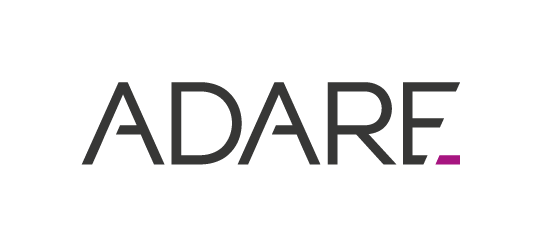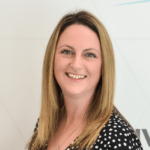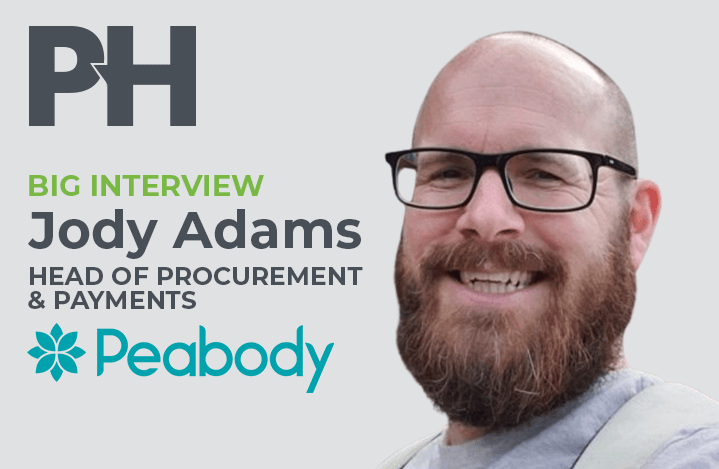Our June edition features Lisa Isaac, Global Procurement Director at Adare International.

How did you get into Procurement in the first place?
My route into Procurement, like many people’s, wasn’t planned. My interest stemmed from sitting next to Procurement teams in various businesses early on in my career. They had an aura of gravitas around them which was awe-inspiring to me fresh into the corporate world, but after watching them for a while I also realised how fundamental they were to the business.
I decided then that I’d volunteer for any opportunity to work on cross-functional projects with colleagues in Procurement and, critically, I also made it known that I was very interested in a career in Procurement. That way, when people started to think of filling vacancies or attracting different talent, I would be considered. That’s pretty much how I managed to land my first dual role with National Sales, liaising with a buying team on third party brands. It wasn’t long after that I moved into my first proper Buyer role (100% dedicated to Procurement!) with a National account customer that I used to look after. The rest is history!
What does a typical day in Procurement look like for you?
I know it’s cliché but in a global business like Adare, there is no such thing. My day is dictated by two things: the location I’m based in and time zones. I’ve got teams in Hong Kong, mainland Europe, the UK and Latin America so calls tend to be either at the very beginning or the very end of the day to try and fit everyone in, sometimes at quite unsociable hours!
Some of the best advice I was ever given was to avoid looking at emails for the first couple of hours in the day, because you can get dragged into the urgent not necessarily the important. I tell my team to phone, skype or instant message me because I find it much more effective – with such a diverse team speaking multiple languages, lots can get lost in translation over email.
Once everyone has gone home, the quiet work time begins for me. There’s usually a small group of us left in the office who tend to get the most done in the hour and a half after everyone else has disappeared. I do work long hours but everything I do I find so interesting I hardly notice the time!
Do you travel much, to spend time with the other teams you manage?
I often travel to spend time with my teams. Skype and technology is fantastic and we’re very reliant on it as a business, but you can’t beat human interaction. I consider face to face time crucial, both with my team and with suppliers.

What do you love about Procurement?
The variety is the real draw for this profession. That’s why there’s no typical day! I’ve worked in FMCG, food, hospitality and press. I think it’s amazing to be able to have a career where you can take all of your skills somewhere else and start afresh – it’s just the products and services that change.
But what I enjoy most about my role is the opportunity to make a real difference to the business. That is what gives the ‘work’ aspect of my life a lot of purpose. I mentioned before that I used to watch Procurement teams and think they were so important, and now that I’m in this line of work myself I don’t think any differently – I still believe we are crucial to any business. We affect the bottom line, help solve critical issues and we manage risk – we are really important as a function, and I love that.
Have you noticed any trends in the Procurement Industry lately?
The theme that’s everywhere right now is ‘sustainability’.
Sustainability is something I find fascinating and I believe it has become a Procurement issue to deal with. We need to be sitting in front of the right people in the business, overseeing an environmental supply chain, managing costs for the business and influencing how we move forward.
There are the obvious environmental impacts that resonate with most of us, but a lot of businesses don’t really know how to approach sustainability in its wider context. Responsible sourcing is crucial, but sustainability is about business models, the industries we are working in, and how we move forward within an environmental and social context.
At Adare, we deal with a lot of large multinational clients who are all trying to define what Sustainability means for them. We want to get ahead of the curve with those clients and demonstrate the impact we are already making in the supply chain.
Who has had the biggest influence over your Procurement career?
My choice of line managers, whatever level I’ve been working at, has been crucial for me. I would advise people to select who they want to work for as carefully as the role itself. It is said that people often don’t leave jobs, they leave managers, and I do believe that without the right support a dream role quickly loses its sparkle.
I’ve always wanted to work for people I respect and can learn from and who challenge and test me, and I’ve been very fortunate to have worked with some fantastic individuals. I was given my first ‘break’ by somebody who recognised a confident skillset and the appetite I had – and I learned the basics and the grounding from them as to what makes a good Procurement professional. They had a huge influence over my career and we still keep in touch to this day, we met up for dinner only a few weeks ago!
What has been the biggest lesson you’ve learnt in Procurement?
Without a doubt the biggest Procurement lesson I’ve learnt is that if you’re going to maintain relationships you have to be really clear about personal integrity. Successfully creating, developing and maintaining good relationships is crucial in our profession. We’re delivering promises on behalf of our businesses so we have to believe and be confident in what we’re saying and doing.
There is a lot of pressure on Procurement to find cost savings and deliver ‘big’ deals. Early in your career it’s easy to get over excited, everybody enjoys the buzz of a negotiation and coming out the winner. You can focus too much on winning business rather than maintaining longer term relationships, and you have to strike the right balance between both.
With experience, you’re able to better predict outcomes and scenarios. I have seen less experienced colleagues being ‘hard line’, thinking we must show the supplier “who’s boss”. I don’t support that approach and I don’t want my team to believe that’s how we best deliver a result. Most people go through it and learn from it but it’s not something you want to hang on to. Learn that lesson quickly and move on!
If you could give any advice to your younger self, what would it be?
Take chances – what’s the worst that can happen?
Early in your career you’ll typically over analyse opportunities with a misconception that you have to jump through hoops before you’re ready for the next step. The worst thing you can do is think you won’t be capable.
You soon realise that a lot of people get their big break purely by stepping forward to take it and jumping in at the deep end. Looking back, I’ve moved at a career pace I’m happy with but there were definitely occasions I should have put myself forward for opportunities and taken every chance.
I also think I should have dyed my hair a crazy colour too – I was a little too sensible when I was younger, and I am not sure what reaction I would get from colleagues and suppliers if I did that now!
Is there anything you’re passionate about championing in the word of Procurement?
I am passionate about spreading the world of Procurement to the younger generation. I’m the Education and Liaisons Officer for the CIPS Thames Valley branch and I think it’s really important for us to encourage young people when they leave school or during university, to consider Procurement as a career.
Procurement is exciting, it’s dynamic and it’s got a lot of variety – but it’s overlooked in a lot of ways because we are often wrongly considered a ‘back of house’ function. For a business-wide commercial role, I think Procurement is a great place to start.
If you are beginning to think about a career in Procurement then get involved with organisations like CIPS. In my career, it has been a huge help on numerous occasions to have a professional body and network to reference for different types of support. I can’t recommend it enough.
Get to know Lisa Isaac
What do you like to do in your spare time?
When I was younger I wanted to be a fashion designer and a real interest in textiles is something that has always stuck with me. I love screen printing, sewing and knitting – at home I’ve converted one of our rooms into a little sewing den! I do a lot tailoring and alterations – prom and wedding dresses are my favourites, the glamorous ones are always fun to do. I like to be a bit more creative than I would appear in a professional capacity!
I’m also crazy about animals! I’ve got a couple of small aquariums and a Miniature Schnauzer – the real loves of my life, as my husband often jokes! I’d love more pets.
I studied Scandinavian languages at university, so I do have to confess to liking a lot of Scandi Noir. You’ll find me reading a mixture of that and ‘teach yourself’ language books! Working in a global business like Adare, it’s helpful knowing just a couple of basic phrases in local languages – suppliers and colleagues really appreciate it even I do just say ‘hello’ and ‘thank you’ badly.
Do you enjoy travelling?
Oh yes. Iceland, Denmark and Norway are my favourites. After that, the Middle East – I absolutely love it. If my husband and I are debating a long weekend or short break, that’s where we’ll go! We think it’s wonderful, a fascinating part of the world. It also offers an awful lot of luxury when you want some down time.
Is it important to you to achieve work / life balance?
I think it’s absolutely critical. I see lots of colleagues, and I’ve been there myself, get to the stage where you’re working until 3am and then getting up at 5am to carry on – and it’s not a productive way to work. It is a shame that historically long working hours have been considered a badge of honour, more so than the quality of output.
With age and experience, you work out what’s important for your best productivity. For me it’s the first couple of hours in the morning. The first thing I’ll do is take the dog for an early walk when I wake up. It’s quiet and peaceful and it’s great thinking time so I end up mentally drawing up my to do list for the day. For the creativity of thought it’s good to be away from everything, and for me that’s precious time. I come back from our walks and grab a cup of coffee and sit for 10 minutes. It sets me up in the right way for the day!
It’s also important to have time where I switch off from work completely and focus on myself and my family. You’ve got to get that balance and recharge properly – high energy is not sustainable any other way, and that isn’t productive for business.





